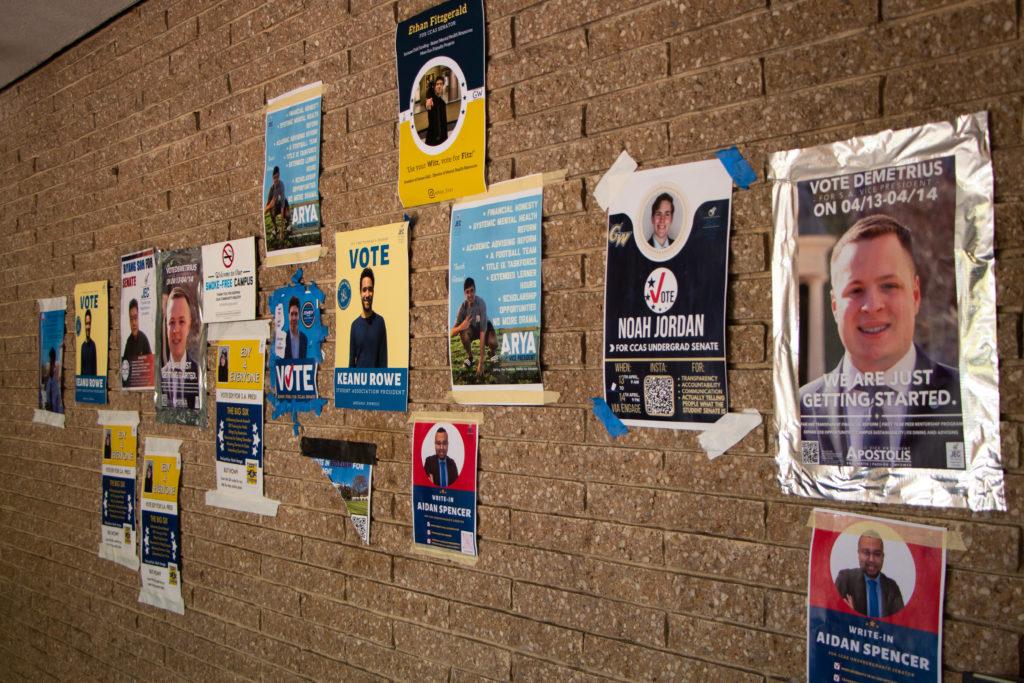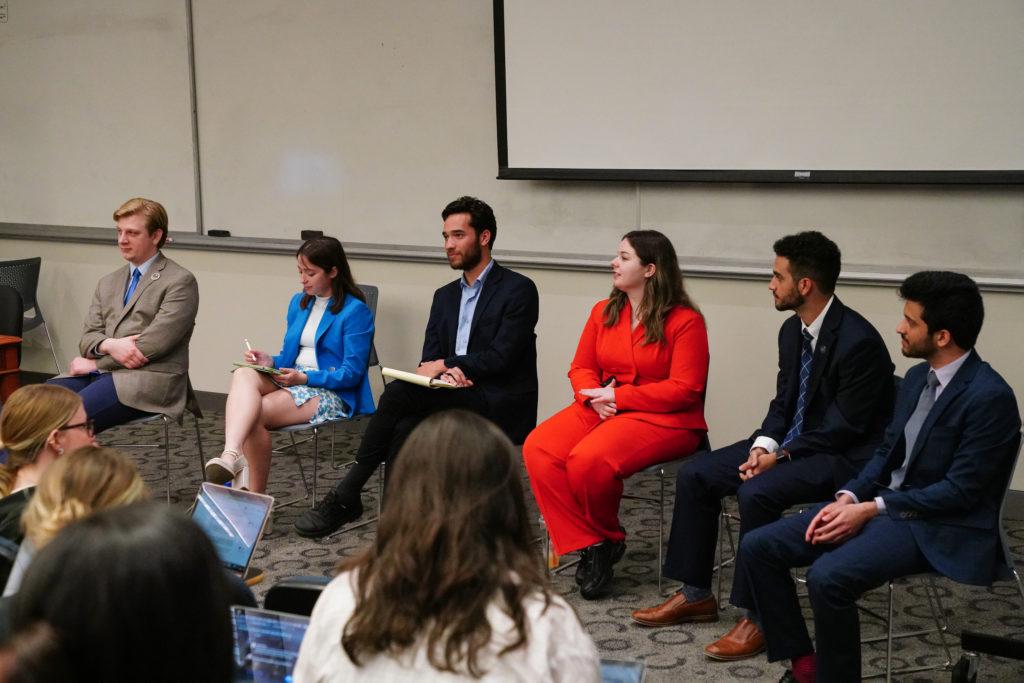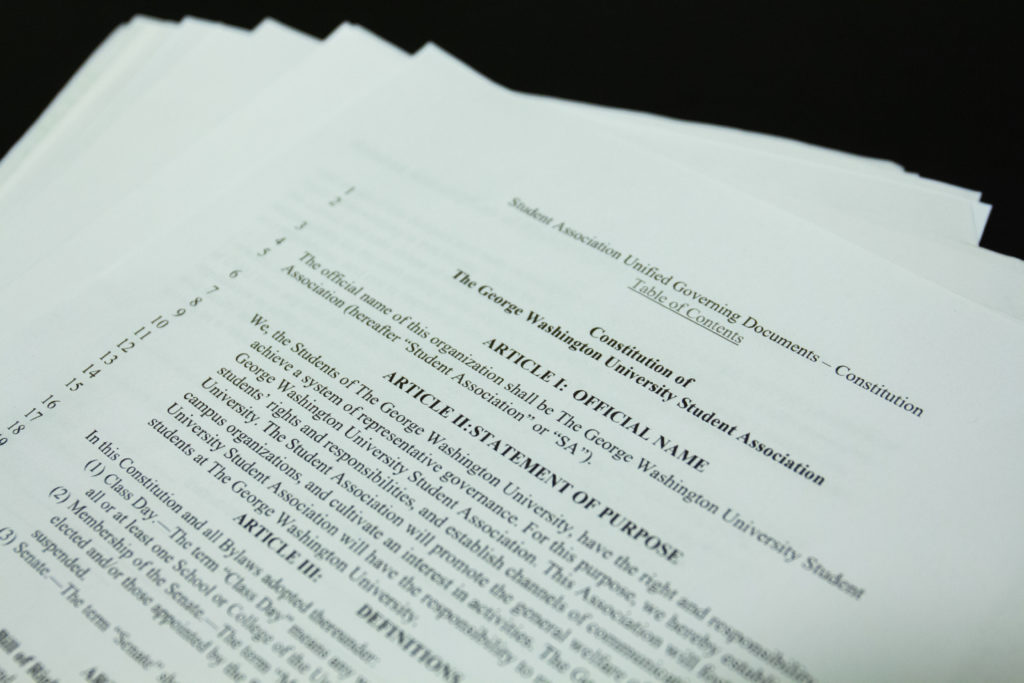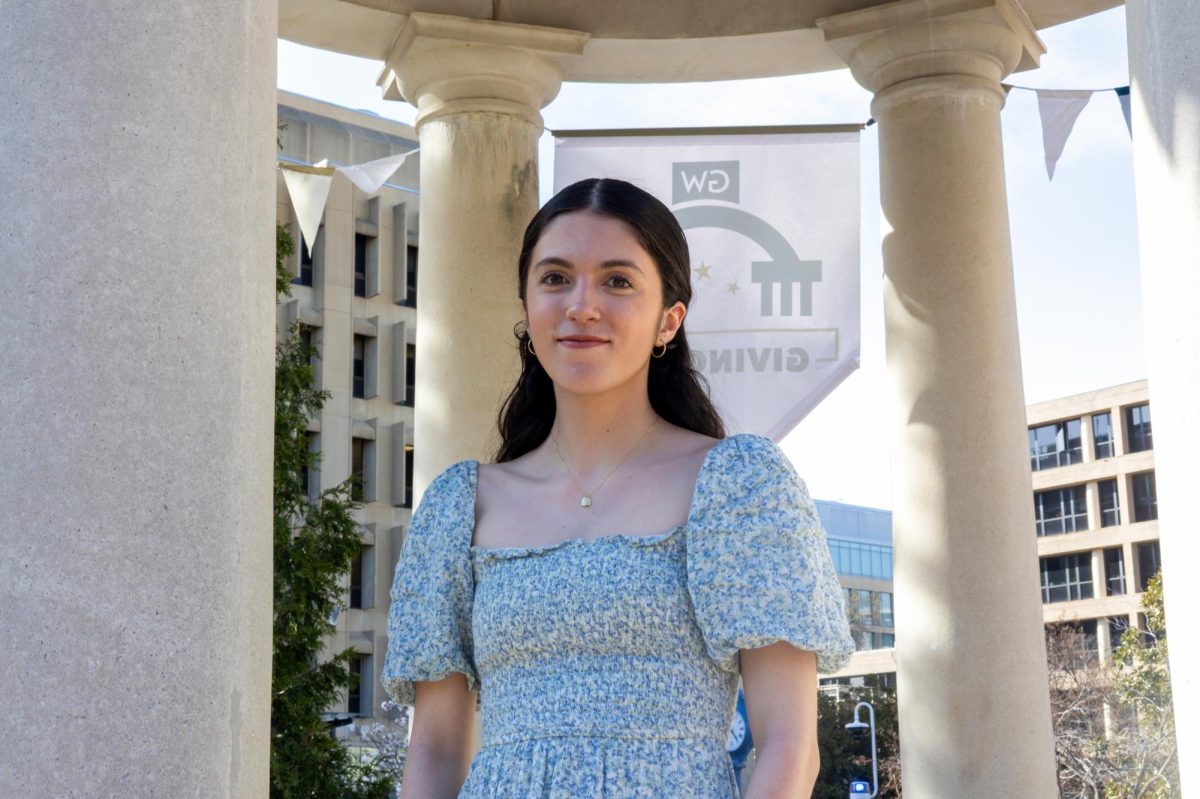Freshman Michael Ubis had run elections in the past, but he had no idea what the Student Association had in store for him.
Ubis, the Joint Elections Commission’s policy and finance commissioner, started working the polls in the 2020 Texas general elections in addition to state and local elections in 2021. The SA Senate confirmed him to the JEC in late January – along with JEC Commissioner Fatima Konte and another JEC member, senior Catalina DeSouza – about two months later than the December deadline specified in SA bylaws.
The senate filled the five-member commission in early February when it confirmed junior Oliver Plavin and graduate student Marie Falcone. The slew of late appointments was the start of an election cycle marked by delays and disorganization.
The JEC delayed the election twice – first requesting the senate to extend the March 31 deadline for SA elections and setting the new date to April 5 and 6. After barring three candidates from the ballot last month because of issues with their signatures, the JEC postponed the election another week to April 13 and 14.
“We didn’t run a bad election by any means, but people have left this election with a bad taste in their mouth,” he said. “And I don’t want to end on that foot.”
Ubis said the commission waited until Feb. 13 to begin meeting once each member had agreed on their respective roles – seven weeks before the election was slated to begin. He said the commission, which had no returning members, lost “institutional knowledge” this year. The JEC’s former chair, Trip Johnson, graduated after he served on the JEC in the 2021 and 2022 elections.
“We had to basically start from scratch,” Ubis said. “We all had to read the bylaws.”
He said his initial understanding of election policies and deadlines for election events was outdated and incorrect because, before the senate confirmed him as a JEC member, he read the version of the election bylaws from the 2019-20 academic year. Those outdated bylaws included different dates for the election, campaign period and registration period than the updated version.
The senate voted to merge the SA’s bylaws and other governing documents last summer, including the JEC’s charter and Student Court bylaws. Previously, the JEC’s charter, which the senate wrote, was a separate document.
Ubis said he first heard about the JEC in December after seeing an Instagram post advertising available positions, and he applied before winter break. By the end of the semester, the senate should have already confirmed all JEC commissioners, according to the bylaws.
The SA first advertised applications to join the JEC in late November but extended the application deadline from Nov. 29 to Dec. 20 due to a lack of interest. Last year, the JEC first advertised applications in October, extending its deadline from Nov. 5 to Nov. 12, according to its Facebook page.
SA President Christian Zidouemba said “students were not interested” after he posted applications for the JEC. He said he reached out to “more than 10” political student organizations to recruit students to join the JEC.
The bylaws state the candidate registration period should be between four and seven calendar days, but the JEC scheduled the period over 15 calendar days this year.
About five days after candidate registration closed, the JEC disqualified three prospective candidates from the ballot because of issues with their petition signatures. In a March 27 hearing, the commission barred Zidouemba from running for office, ruling he violated SA election bylaws by “wrongfully collecting signatures” for himself while purporting to do so for the campaigns of other candidates, including his chief of staff, Keanu Rowe.
On March 28, the JEC also rejected the candidacy of presidential hopeful and GW Entrepreneurship Club leader Mohamed Redzuan Bin Mohamed Raffe and prospective senate candidate and sophomore Aidan Spencer because students who signed their petitions failed to include their GWIDs and schools, respectively. Between March 28 and March 29, Zidouemba, Spencer and Raffe each filed cases in Student Court appealing their disqualifications, which they later withdrew.
Ubis said allowing the JEC chair, not the SA president, to appoint commissioners could give the JEC more independence from the “controversy” of the SA, which can interfere with the JEC’s operations. He said the SA could ensure the election stays on track if senators or other SA members temporarily acted as JEC members to start organizing the election before the senate confirms commissioners.
“I’ve been happy with how we’ve been able to work together as a team, how we’ve been able to start with nothing and end with an election next week,” he said. “That’s really something I’m proud of.”
Joint Elections Commissioner Fatima Konte, whom Zidouemba appointed to lead the commission, said the JEC should be more distinct from the SA to attract applicants who might have “personal qualms with the SA.”
She said in future years, she would stress that candidates should know the rules for participating in the election, adding that there was “confusion” over how candidates could virtually collect signatures during spring break. Candidates said they were unable to view how many digital signatures they received on virtual petition forms or whether students included all necessary components of their signature, like their GWIDs.
“If you’re running for a particular position, you have to be prepared to know the rules and regulations of that position,” she said in an interview. “So I know the bylaws as well as I’m supposed to know them, but you’re the candidate, not me.”
She said she considered the JEC’s final selection of an election date a success.
“Anything that we did was an accomplishment,” she said. “It was a rough time for everyone involved, but we still managed to get it done.”
SA presidential candidate and Sen. Rami Hanash Jr., GWSB-U, said his campaign team started meeting weekly to “recalculate” his campaign strategy after the JEC delayed the election the second time, rescheduling a campaign event where he distributed coffee and donuts to potential voters to fit the new campaign period.
He said he is scheduled to work during the announcement of the election results, which were pushed from last Friday to this Saturday at 5 p.m.
“They were appointed so, so late,” he said. “They were supposed to run an election in March, and they just got confirmed in February.”
Arielle Geismar, an SA presidential candidate and the president of the Residence Hall Association, said she lost out on time to campaign after the period to do so crossed into Passover. The 10-day campaign period started on April 3, two days before the start of Passover, which lasts eight days.
“Inherently, when you put a campaign period over the exact same time as a major religious holiday, the people who observe that holiday are going to be busy observing that holiday,” she said.
Geismar said the JEC’s language on campaign procedures is unclear, and the JEC should define terms like “dorm storming” – the period during which candidates can campaign in residence halls – to help them understand which practices are not permitted.
“I’m currently running a campaign, learning the rules and justifying why I belong at the same time,” she said.











